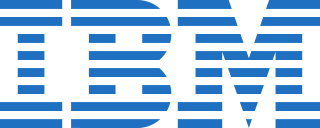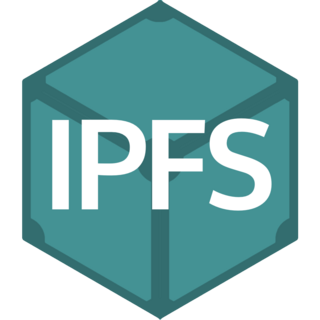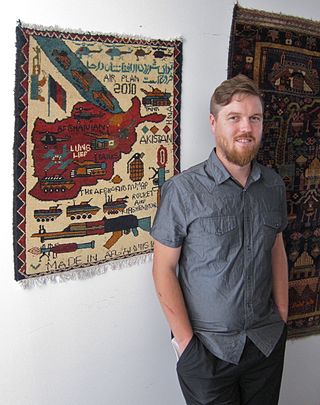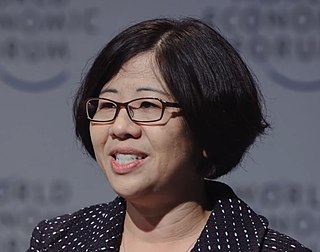
IBM Research is the research and development division for IBM, an American multinational information technology company headquartered in Armonk, New York, with operations in over 170 countries. IBM Research is the largest industrial research organization in the world and has twelve labs on six continents.

IBM is a globally integrated enterprise operating in 170 countries. IBM's R&D history in Israel began in 1972 when Professor Josef Raviv established the IBM Israel Scientific Center in the Technion's Computer Science Building in Haifa. As of 2023, over 3000 individuals work at IBM R&D locations across Israel, including Haifa, Tel Aviv, Herzliya, Rehovot, and the Jerusalem Technology Park.
Body hacking is the application of the hacker ethic in pursuit of enhancement or change to the body's functions through technological means, such as do-it-yourself cybernetic devices or by introducing biochemicals.
The UCSC Silicon Valley Initiatives are a series of educational and research activities which together increase the presence of the University of California in Silicon Valley. To that end, UC Santa Cruz has set up a 90,000 square-foot satellite campus called the University of Santa Cruz Silicon Valley Campus (SVC), currently located on Bowers street in Santa Clara, California, where it has been since April 2016 The Initiatives, still in the early stages of their development, have had ambitious hopes attached to them by UCSC, among them the possibility of a home for the University's long-planned graduate school of management and the Bio|Info|Nano R&D Institute. It currently houses professional the SVLink incubator-accelerator program, programs and a distance education site for the UCSC Baskin School of Engineering, the UCSC Silicon Valley Extension, the Office of Industry Alliances and Technology Commercialization leadership, and the University of California's online learning program, UC Scout.

Deborah Estrin is a Professor of Computer Science at Cornell Tech. She is co-founder of the non-profit Open mHealth and gave a TEDMED talk on small data in 2013.

The Methuselah Foundation is an American-based global non-profit organization based in Springfield, Virginia, with a declared mission to "make 90 the new 50 by 2030" by supporting tissue engineering and regenerative medicine therapies. The organization was originally incorporated by David Gobel in 2001 as the Performance Prize Society, a name inspired by the British government’s Longitude Act, which offered monetary rewards for anyone who could devise a portable, practical solution for determining a ship's longitude.

Do-it-yourself biology is a biotechnological social movement in which individuals, communities, and small organizations study biology and life science using the same methods as traditional research institutions. DIY biology is primarily undertaken by individuals with limited research training from academia or corporations, who then mentor and oversee other DIY biologists with little or no formal training. This may be done as a hobby, as a not-for-profit endeavor for community learning and open-science innovation, or for profit, to start a business.

Atul Janardhan Butte or Atul J. Butte is an American biomedical informatician, pediatrician, and biotechnology entrepreneur. He is currently the Priscilla Chan and Mark Zuckerberg Distinguished Professor at the University of California, San Francisco. Since April 2015, Butte has serves as inaugural director of UCSF's Bakar Computational Health Sciences Institute.

Dave Asprey is an American entrepreneur, author and advocate of a low-carbohydrate, high-fat diet known as the Bulletproof diet, about which he has made claims criticized by dietitians as pseudoscientific. He founded Bulletproof 360, Inc. in 2013, and in 2017, founded Bulletproof Nutrition Inc. Men's Health described Asprey as a "lifestyle guru".
Claudio Silva is a Brazilian American computer scientist and data scientist. He is a professor of computer science and engineering at the New York University Tandon School of Engineering, the head of disciplines at the NYU Center for Urban Science and Progress (CUSP) and affiliate faculty member at NYU's Courant Institute of Mathematical Sciences. He co-developed the open-source data-exploration system VisTrails with his wife Juliana Freire and many other collaborators. He is a former chair of the executive committee for the IEEE Computer Society Technical Committee on Visualization and Graphics.

The InterPlanetary File System (IPFS) is a protocol, hypermedia and file sharing peer-to-peer network for storing and sharing data in a distributed hash table. By using content addressing, IPFS uniquely identifies each file in a global namespace that connects IPFS hosts, creating a resilient system of file storage and sharing.

Laura Deming is a venture capitalist whose work focuses on life extension, and using biological research to reduce or reverse the effects of aging.

Todd Huffman is an American technology entrepreneur and prolific photographer. He was a co-founder of the biomedical imaging company 3Scan, a member of the disaster aid group Synergy Strike Force, a researcher for DARPA, and a co-founder of the unconference BIL Conference.

Filecoin (⨎) is a cryptocurrency intended to be a blockchain-based cooperative digital storage and data retrieval method. It was developed by Protocol Labs and shares some ideas from InterPlanetary File System allowing users to rent unused hard drive space. Filecoin is an open protocol and uses a blockchain to record participation in the network. Transactions are made using the blockchain's currency, FIL. The blockchain is based on both proof of-replication and proof of space-time.

3Scan, Inc. was an American biotechnology company based in San Francisco, California which was acquired in 2019, when 3Scan became a part of Strateos. It offered automated microscopy services using a coordinated combination of both hardware and software for the 3D analysis of cells, tissues, and organs. The company was founded in 2011 by Todd Huffman, Megan Klimen, Matthew Goodman, and Cody Daniel. The 3Scan technology is based on the Knife Edge Scanning Microscope developed in the late 1990s by Bruce McCormick, founder of the Brain Networks Lab at Texas A&M University.

Lydia Lee Sohn is a professor of mechanical engineering and bio-engineering at the University of California, Berkeley and the co-founder of Nodexus. In 2002, Sohn and Paul McEuen uncovered figure duplication and fraud in scientific papers on semiconductors written by Jan Hendrik Schön, leading to multiple retractions and concerns over peer-review, which is referred to as the Schön scandal.

Irina Bolychevsky is a British activist and data specialist, focused on Open Data, decentralized technologies, and technical standards. She is currently director of standards and interoperability at the NHSX of the United Kingdom Government. She has been part of large organizations in those fields, including the Open Knowledge Foundation, the World Wide Web Consortium, and the Open Data Institute, and worked for the UK, Dubai and UAE government administrations. She co-founded Redecentralize.org, an advocacy group promoting decentralized technologies.

Biological data refers to a compound or information derived from living organisms and their products. A medicinal compound made from living organisms, such as a serum or a vaccine, could be characterized as biological data. Biological data is highly complex when compared with other forms of data. There are many forms of biological data, including text, sequence data, protein structure, genomic data and amino acids, and links among others.
The League of Entropy (LoE) is a voluntary consortium of organizations working together to implement an unpredictable, bias-resistant, fully decentralized, and publicly-verifiable threshold cryptosystem designed to deliver distributed Randomness as a Service, (RaaS) among other use cases. The open-source software that powers the League of Entropy's network is called drand,.

William L. Wilson is an American chemist. He serves as the Executive Director of the Center for Nanoscale Systems (CNS) at Harvard University. At Bell Labs, Wilson collaborated with 2023 Nobel Prize in Chemistry awardees, Louis Brus and Moungi Bawendi, in the early development and characterization of colloidal semi-conductor nanocrystals known as quantum dots. As an expert in holographic technologies, Wilson co-founded InPhase Technologies and served as their Chief Scientific Officer.
















